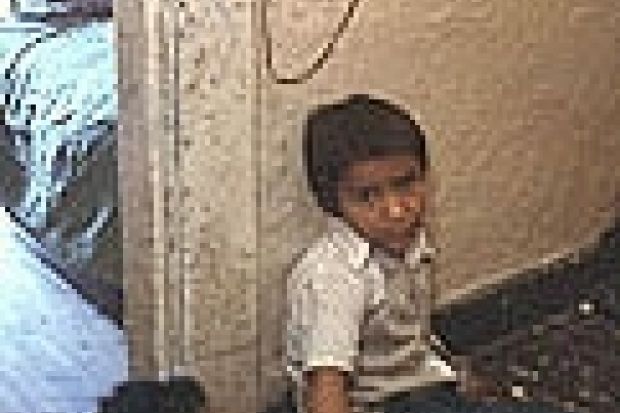Philip Fine looks at how academics can get politicians' attention to influence policy
Kevin Gorey knows that ever since Hillary Clinton failed to get universal healthcare for the country her husband was leading, no politician would be going out of his or her way any time soon to try to take a second swipe at the powerful insurance industry. What this also means is that no politician will be likely to use Gorey's research to help America's poor. That bottom economic rung, compared with Canada's poor, shows lower cancer survival rates, according to his research.
He knows it is not breakthrough epidemiological work that might convince the United States to adopt Canadian-style universal medical care. Instead, one has to account for strong political feeling.
Gorey, a professor at the University of Windsor, on the Canadian-US border, is part of a subset of university researchers who are not satisfied with just discovering knowledge but feel it is their duty to help influence public policy. He feels that informing politicians is a priority after his duty to his colleagues and to the public, even though academic training never taught him public relations.
Canadian physician Fraser Mustard's work on early childhood development and how it affects adult life led to the province of Ontario's Early Years Learning Study and more recently helped to establish a national childcare programme in Canada. His work has also got into the hands of Unicef and the Australian government.
It may have started simply with the ego of Ontario premier Mike Harris. "He said he wanted something that he would be remembered for in 50 years," Mustard says. He explains that the Ontario leader later brought the commissioned study to his provincial colleagues at a premiers' conference, the study was then reported on the front page of a national newspaper. "I suddenly became an instant expert on early childhood development," says Mustard, who also founded the Canadian Institute for Advanced Research.
But headlines aside, Mustard knows how to gather his forces. In the late 1960s he brought together academics of all stripes, along with some business people - concentrating on those known for donations to political parties - and eventually convinced the federal government to raise the medical research budget by 30 per cent for three years in a row.
Getting a politician's attention means making a submission that will stand out from the many files that land on his or her desk. But federal member of parliament and former historian John Godfrey says the one thing he finds hard to ignore is when there is an overwhelming number of scientists getting together to say the same thing. An example is climate change, where intergovernmental panels of experts are calling on governments to take action.
It is that momentum on which an academic should try to build, say researchers active in public policy. "Politicians never lead parades. They only lead when a parade has been created," Mustard says, echoing others when he talks about putting your case in clear, "decoded" terms and bringing out an issue that the public will rally behind.
Audiologist Richard Seewald convinced his government that action needed to be taken to promote infant-hearing screening. He and colleagues, all concerned with Canada's poor standing in the area, used their force to present evidence to provincial and federal politicians, who eventually funded a working group and injected C$7 million (£3.2 million) into the neglected area.
Marc Renaud, president of Canada's Social Sciences and Humanities Research Council, says researchers are trying to strike the right balance between talking to colleagues, but knowing they must also trigger public attention with their work. "We have traditionally said 'publish or perish.' Now it is 'go public or perish'." Renaud says.
Academics can often be the bridge between the civil servant and the politician, which allows them to eventually penetrate the government advisory structure. Civil servant David Viveash, who is part of that structure, works on human security policy for Canada's Department of Foreign Affairs and International Trade. He says the academics he meets are the ones who have time to read the journals and will have contacts in the key areas the government is studying. It is through consulting them, attending their conferences and reading their papers that he has been informed in such diverse areas as Middle Eastern conflict or land mines, for which Canada helped negotiate an international treaty.
Gorey, the epidemiologist, seems philosophical about his lack of political success. He says it might take some time, maybe 15 years, before the press releases he sends to American politicians are used to help change the system. "What I can do during that time is to keep reporting in scientific forums, continue doing my part. The biggest role I can play is to continue producing knowledge."
Register to continue
Why register?
- Registration is free and only takes a moment
- Once registered, you can read 3 articles a month
- Sign up for our newsletter
Subscribe
Or subscribe for unlimited access to:
- Unlimited access to news, views, insights & reviews
- Digital editions
- Digital access to THE’s university and college rankings analysis
Already registered or a current subscriber?
